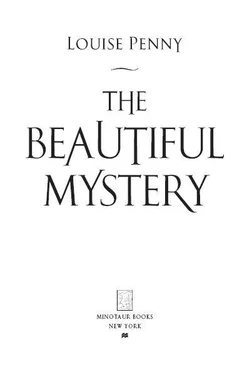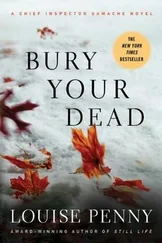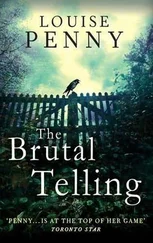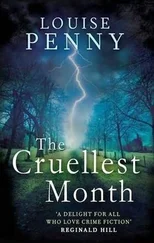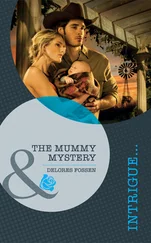“What’ve you got there?” Annie Gamache asked, leaning across the table. The cat leapt to the ground and found a spot on the floor where the sun hit.
“Nothing,” he grinned. “Just a little je ne sais quoi I saw, and thought of you.”
Beauvoir lifted it into plain sight.
“You asshole,” Annie said, and laughed. “It’s a toilet plunger.”
“With a bow on it,” said Beauvoir. “Just for you, ma chère. We’ve been together for three months. Happy anniversary.”
“Of course, the toilet plunger anniversary. And I got you nothing.”
“I forgive you,” he said.
Annie took the plunger. “I’ll think of you every time I use it. Though I think you’ll be the one using it most of the time. You are full of it, after all.”
“Too kind,” said Beauvoir, ducking his head in a small bow.
She thrust the plunger forward, gently prodding him with the red rubber suction cup as though it was a rapier and she the swordsman.
Beauvoir smiled and took a sip of his rich, aromatic café. So like Annie. Where other women might have pretended the ridiculous plunger was a wand, she pretended it was a sword.
Of course, Jean-Guy realized, he would never have given a toilet plunger to any other woman. Only Annie.
“You lied to me,” she said, sitting back down. “Dad obviously told you about the bathmat.”
“He did,” admitted Beauvoir. “We were in Gaspé, in a poacher’s cabin, searching for evidence when your father opened a closet and found not one but two brand-new bathmats, still in their wrapping.”
As he spoke he looked at Annie. Her eyes never left him, barely blinked. She took in every word, every gesture, every inflection. Enid, his ex-wife, had also listened. But there was always an edge of desperation about it, a demand. As though he owed her. As though she was dying and he was the medicine.
Enid left him drained, and yet still feeling inadequate.
But Annie was gentler. More generous.
Like her father, she listened carefully and quietly.
With Enid he never talked about his work, and she never asked. With Annie he told her everything.
Now, while putting strawberry confiture on the warm croissant, he told her about the poacher’s cabin, about the case, the savage murder of a family. He told her what they found, how they felt, and who they arrested.
“The bathmats turned out to be the key pieces of evidence,” said Beauvoir, lifting the croissant to his mouth. “Though it took us a long time to figure it out.”
“Is that when Dad told you about his own sad history with bathmats?”
Beauvoir nodded and chewed and saw the Chief Inspector in the dim cabin. Whispering the story. They weren’t sure when the poacher would return, and they didn’t want to be caught there. They had a search warrant, but they didn’t want him to know that. So as the two homicide investigators deftly searched, Chief Inspector Gamache had told Beauvoir about the bathmat. Of showing up for one of the most important meals of his life, desperate to impress the parents of the woman he’d fallen hopelessly in love with. And somehow deciding a bathmat was the perfect hostess gift.
“How could you have thought that, sir?” Beauvoir had whispered, glancing out the cracked and cobwebbed window, hoping not to see the shabby poacher returning with his kill.
“Well, now,” Gamache had paused, obviously trying to recall his own thinking. “Madame Gamache often asks the same question. Her mother never tired of asking either. Her father, on the other hand, decided I was an imbecile and never mentioned it again. That was worse. When they died we found the bathmat in their linen closet, still in its plastic wrapping, with the card attached.”
Beauvoir stopped talking and looked across at Annie. Her hair was still damp from the shower they’d shared. She smelled fresh and clean. Like a citron grove in the warm sunshine. No makeup. She wore warm slippers and loose, comfortable clothing. Annie was aware of fashion, and happy to be fashionable. But happier to be comfortable.
She was not slim. She was not a stunning beauty. Annie Gamache was none of the things he’d always found attractive in a woman. But Annie knew something most people never learn. She knew how great it was to be alive.
It had taken him almost forty years, but Jean-Guy Beauvoir finally understood it too. And knew now there was no greater beauty.
Annie was approaching thirty now. She’d been a gawky teenager when they’d first met. When the Chief Inspector had brought Beauvoir into his homicide division at the Sûreté du Québec. Of the hundreds of agents and inspectors under the Chief’s command, he’d chosen this young, brash agent no one else had wanted as his second in command.
Had made him part of the team, and eventually, over the years, part of the family.
Though even the Chief Inspector had no idea how much a part of the family Beauvoir had become.
“Well,” said Annie with a wry smile, “now we have our own bathroom story to baffle our children with. When we die they’ll find this, and wonder.”
She held up the plunger, with its cheery red bow.
Beauvoir didn’t dare say anything. Did Annie have any idea what she’d just said? The ease with which she assumed they’d have children. Grandchildren. Would die together. In a home that smelled of fresh citron and coffee. And had a cat curled around the sunshine.
They’d been together for three months and had never talked about the future. But hearing it now, it just seemed natural. As though this was always the plan. To have children. To grow old together.
Beauvoir did the math. He was ten years older than her, and would almost certainly die first. He was relieved.
But there was something troubling him.
“We need to tell your parents,” he said.
Annie grew quiet, and picked at her croissant. “I know. And it’s not like I don’t want to. But,” she hesitated and looked around the kitchen, and out into her book-lined living room, “this is nice too. Just us.”
“Are you worried?”
“About how they’ll take it?”
Annie paused and Jean-Guy’s heart suddenly pounded. He’d expected her to deny it. To assure him she wasn’t the least bit worried whether her parents would approve.
But instead, she’d hesitated.
“Maybe a little,” Annie admitted. “I’m sure they’ll be thrilled, but it changes things. You know?”
He did know, but hadn’t dared admit it to himself. Suppose the Chief didn’t approve? He could never stop them, but it would be a disaster.
No, Jean-Guy told himself for the hundredth time, it’ll be all right. The Chief and Madame Gamache will be happy. Very happy.
But he wanted to be sure. To know. It was in his nature. He collected facts for a living, and this uncertainty was taking its toll. It was the only shadow in a life suddenly, unexpectedly luminous.
He couldn’t keep lying to the Chief. He’d persuaded himself this wasn’t a lie, just keeping his private life private. But in his heart it felt like a betrayal.
“Do you really think they’ll be happy?” he asked Annie, and hated the neediness that had crept into his voice. But Annie either didn’t notice or didn’t care.
She leaned toward him, her elbows and forearms resting on the croissant flakes on the pine table, and took his hand. She held it warm in hers.
“To know we’re together? My father would be so happy. It’s my mother who hates you.…”
Seeing the look on his face she laughed and squeezed his hand. “I’m kidding. She adores you. Always has. They think of you as family, you know. As another son.”
He felt his cheeks burn, to hear those words, and felt ashamed, but noticed that once again Annie didn’t care, or comment. She just held his hand and looked into his eyes.
Читать дальше
